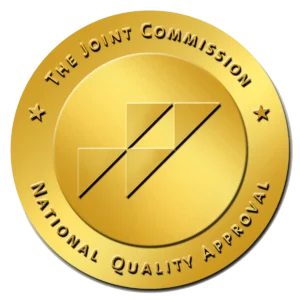If you break your leg, you can feel the pain, you might struggle to bear weight on the impacted limb and you may even be able to see that the bone isn’t where it should be. With mental health, symptoms are not always as obvious to the person who has a condition, making it difficult for them to accept their diagnosis. On top of this, their symptoms may reinforce their inability to accept their diagnosis. Anosognosia is the term that is used to describe a patient’s lack of awareness of and inability to accept their mental health disorder. At The Pavilion, in Williamsburg, Virginia, we treat adults and seniors with conditions that often result in anosognosia.
What Anosognosia Looks Like
Put yourself in the shoes of a person with schizophrenia, dementia, or bipolar disorder. The condition may inherently make you feel confused and distrustful of other people or cause you to believe that you are privy to secret information that other people aren’t able to access. If someone tells you that things you hold to be true are the product of your brain malfunctioning, you’re probably not going to be inclined to believe them. The person with anosognosia is not just in denial or being stubborn. Their brain simply cannot understand that their reality does not align with what is happening around them.
Fluctuations in Acceptance
Anosognosia is not a constant state, so people may be able to identify that they have a mental illness at times, and then be less or not at all able to at other times. This can result in a person who has been willing to take medications for their mental health suddenly deciding not to do so anymore. It can be very scary and frustrating for their loved ones, who are usually better able to recognize that the lack of medication places the patient in greater danger of relapse and future hospitalizations.
Why Anosognosia is a Problem
If someone tries to force you to take medication for a condition you don’t believe you have, how might you respond? Would you take the medication? Might you assume that the person was someone who meant to harm you? If you already believed that people were trying to cause you harm, might you assume that the medication was some sort of poison? This is something that happens often to people with anosognosia. Because of their altered mental state, they cannot always see that their family and the professionals in their lives are trying to help them, and they may resist treatment. People with anosognosia may also present inaccurate information about their condition, leading them to be denied services they desperately need.
How Common is Anosognosia?
This condition is very common among people with serious mental health disorders, but exactly how many people are impacted is not clear. It is estimated that anosognosia impacts:
- 40 percent of people with bipolar disorder
- 50 – 98 percent of people with schizophrenia (so many that some researchers would like for anosognosia to be listed as a symptom of this condition)
What Can Be Done About Anosognosia?
Family members and friends of people with anosognosia often try to reason with their loved one to help them understand their mental illness. They may present facts that contradict the person’s beliefs, hoping that logic will force them to admit that their delusions cannot be true. This does not typically work and may only heighten the distress for everyone involved. It is better for loved ones to focus on helping the patient set and attain goals, like keeping a job, living independently, or attending therapy regularly.
There is not a specific treatment to help people with mental illness accept their diagnoses. Sometimes therapy can help patients become more aware of their condition. They may also need help from a loved one to ensure that their treatment team has accurate information about their capabilities and areas of concern. Simplifying tasks, staying positive, being empathetic, and providing structure to the person can often help them to stay safe while maintaining their highest possible level of independence.
At The Pavilion, we know the value of family involvement in the lives of our patients. We also understand that families may need help understanding the challenges their loved one will face in the future and resources to help with legal issues and decision-making. We are here to help our patients and their informal support network as they work through the challenges of what the diagnosis will mean for their lives.






